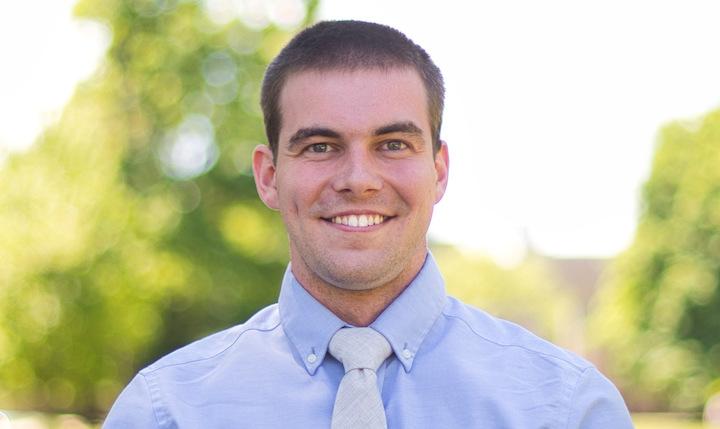Jack Maier, a member of the 28th cohort of ACE Teaching Fellows in Los Angeles, found himself at a fork in the road when he graduated from Notre Dame: pursue his Ph.D. in physics or teach in ACE.
Instead, he asked, why not both?
Maier asked the graduate schools that admitted him if he could defer his enrollment for two years after hearing he was accepted to ACE Teaching Fellows. He argued that it would make him a better grad student and professor.
“I wanted to do something that I thought was important,” he said. “I had always thought about teaching, but I didn’t know if I wanted to teach high school or college so I figured ACE was a perfect opportunity for me to discern that.”
MIT’s academic administrator for the physics department, Catherine Modica, listened to Maier’s pitch and said they would stretch the rules for him – giving him that two-year deferral.
“She said, ‘Education and outreach are very important, it is something I have been passionate about, and this sounds like a good thing. You should just do it. We’ll save you a spot here,’” Maier said.
Maier has been teaching at Cantwell-Sacred Heart of Mary High School in Montebello, California, for the past two years – following a similar path to his uncle, Brick Maier, a member of ACE 8 who also taught in Los Angeles.
Maier teaches algebra and physics at Cantwell-Sacred Heart. For him, one of the best parts of teaching physics is that the laws are straightforward and always work. He tries to connect things that his students interact with every day – cars, phones, speakers, lights, wifi, and bluetooth – to the concepts covered in class and create projects for them to explain the physics behind how they work.
“If I connect those things, it’s helpful because it’s something that will both be more understandable and will stick better with the kids,” he said. “They will actually value their knowledge of physics later on in life because they will see it connected with phones and speakers and lights that they use every day.”
Some projects that make these connections that the students have worked on include building a motor from scratch, wiring a residential light circuit, and building speakers.
Not only does Maier create fun labs and projects for his physics students, he also helps with the STEM club at Cantwell-Sacred Heart. In the STEM club, students learn various STEM skills through projects. These include making bottle rockets, a solar-powered model car, writing computer programs, and building and using 3D printers. The STEM club is currently working on making a set of training videos for the wider student body to learn how to use the 3D printers they now have access to.
Mark Johnson, an associate clinical professor for ACE Teaching Fellows, said that Maier’s commitment to his students and his school, and his creative lessons are what makes him a great teacher in ACE.
“Jack committed himself wholeheartedly during his two years at Cantwell-Sacred Heart of Mary High School. In his teaching, he demonstrated an impressive ability to communicate complex concepts with clarity,” Johnson said. “His lessons were creative and always grounded in real-world application of what students are learning. From his hard work to teach to the best of his abilities, to leading after-school clubs, coaching, writing grants for the school to get more resources, Jack used his many talents to help the school in any way he could.”
As Maier finishes up his second year of teaching and graduates from ACE this summer, he begins a new journey in his academic career with his Ph.D. program at MIT. He is looking forward to the work he will be doing next.
“I think doing ACE will help me with in graduate school with time management, patience, and gratitude,” he said. “I kind of really miss doing hard physics and building interesting things in labs, so I’m really looking forward to going back to that. I think if I had gone straight to physics grad school after college, I wouldn’t have appreciated it as much, but now that I have been away from it for a while, it’s going to be great.”
As Maier transitions from teacher back to student, he said that his time in ACE will help him be a better student and professor someday.
“I think that ACE will help me further down the line to be a more effective professor and parent. I’ve learned a lot about how important it is to be encouraging of people and how that can make or break situations. Teaching involves a different set of skills than physics and I think ACE really helped me develop those skills. It showed me that there is a lot that goes into teaching and helping people move forward besides being able to explain something.”
 Alliance for Catholic Education
Alliance for Catholic Education
